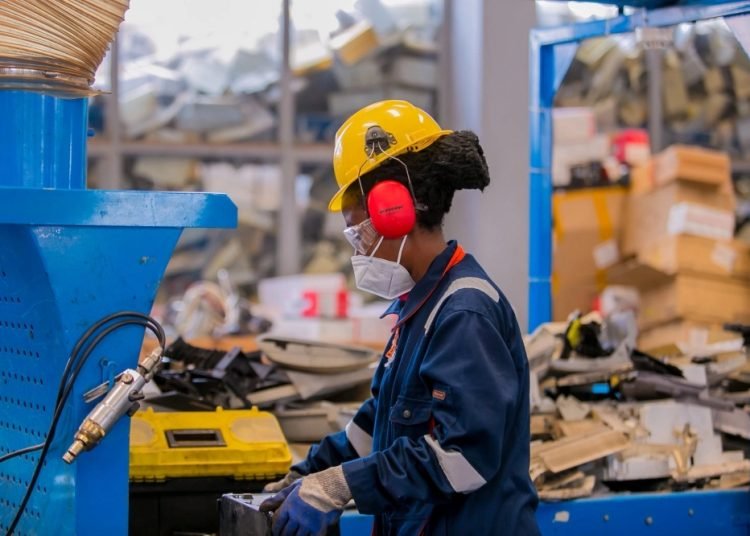Rwanda’s only e-waste recycling facility has announced plans to collect old phones for recycling and dismantling.
This occurs as the nation prepares to host the international circular economy meeting in Kigali from December 6–8 to debate how the circular economy may lower greenhouse gas emissions, help adaptation to climate change, protect biodiversity, and benefit society. A circular economy is characterized as a production and consumption paradigm that prioritizes sharing, renting, reusing, repairing, and recycling already existent resources and goods.
Tons of damage phone e-waste uncollected according to Environmentalists is releasing toxic compounds eventually endangering human health with poisonous chemicals across the country.
Rwanda Utilities and Regulatory Authority (RURA) have recorded about 11 million mobile subscribers adding however only a handful of the old gadgets are traced, properly disposed of and recycled, meaning a bulk of them remain in people’s homes yet they are sources of doing business and generating revenues.
Others are dumped in inappropriate places, pausing serious health and environmental challenges, while some end up in small phone repair shops, they added.
Mobile phone components that are not well disposed of contain toxic substances such as mercury, lead, and cadmium, which may leach from decomposing waste in landfills, seep into groundwater and contaminate the soil, contributing to cancer, damage to the central nervous system, mutation, and other disorders in humans according to environment experts.
For every million cell phones that are recycled, 35,274 pounds of copper, 772 pounds of silver, 75 pounds of gold, and 33 pounds of palladium can be recovered, according to the UN environmental protection Agency.
In 2016 alone, 435,000 tons of phones were discarded, globally.
Speaking in an interview the General Manager of Enviroserve-Rwanda, an electronic and electrical waste recycling facility, Olivier Mbera stressed that while other types of e-waste were being collected, there was no activity for old mobile phones. He also stated that plans are in place to collect old phones.
“We have a project in the pipeline with telecommunication companies like MTN in order to start a campaign of bringing back old feature phones purchased at MTN and getting back smartphones. Enviroserve will collect these feature phones and dispose of them properly,” he said.
Less than 30 per cent of e-waste is collected
Mbera added that the facility can recycle up to 10,000 tons of e-waste a year, but it only recycles less than 30 percent of the capacity due to different challenges.
The challenges, he said, include limited awareness raising on the dangers of e-waste and why e-waste should be disposed of properly, moral attachment on electrical and electronic equipment where people don’t want to release their old equipment as well as lack of enforcement of the current e-waste management regulations.
“Since 2018, we have collected and recycled over 6, 000 tons of e-waste. We were able to refurbish 7, 500 computers and 70 per cent have gone back to schools. We created more than 673 green jobs and over 4, 500 tons of carbon emissions were mitigated,” he said.






























































